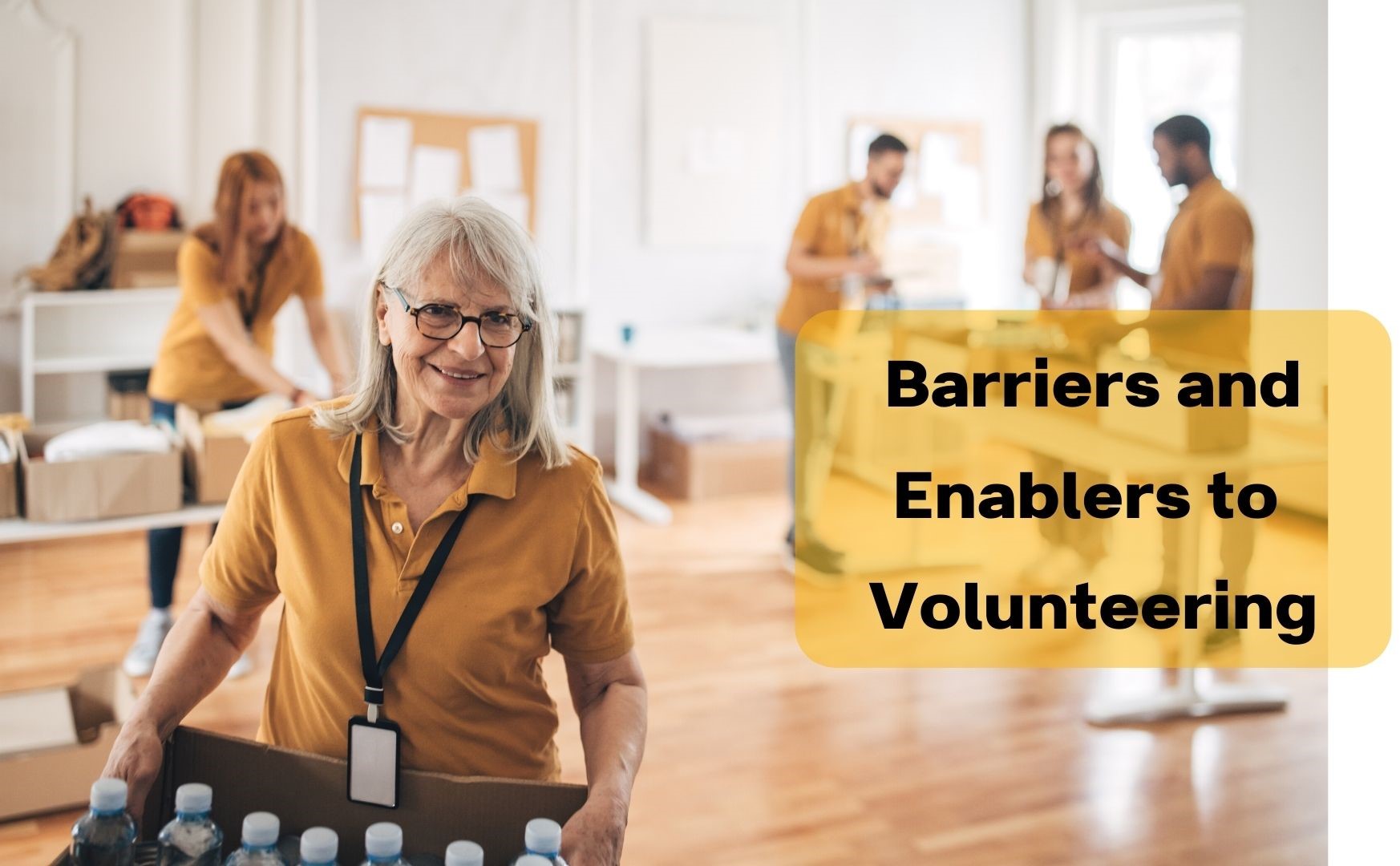

What might be stopping people from volunteering and what would encourage people to get involved? These are two really good questions for older adults who are considering volunteering.
Mitigating the reservations people may have about volunteering can be addressed with:
- more useful and realistic information — much of what blocks people from volunteering can be addressed and rectified, as some of the blockers are rooted in perceptions; what people think rather than what really is
- finding out what opportunities exist — knowing what is available for consideration, helps alleviate apprehension to involvement
- dialogue between prospective volunteers and the organizations they are keen to volunteer with — this will reveal that some reasons for hesitancy are rooted in what was true pre-pandemic — things have changed and the kinds of activities volunteers can do have changed
- an awareness of the many positive benefits* of volunteering outweighing misgivings — once prospective volunteers learn how volunteering contributes positively to health, fulfilment, longevity, happiness, etc. they will hopefully make the effort to dig a little deeper and find out more
- hearing positive feedback from active older adult volunteers themselves.*
A 2023 national survey was conducted on the volunteer experience by The National Council for Voluntary Organisations (NCVO), the largest membership organisation for the voluntary sector in England.
Some of the top reasons why people don’t volunteer from the NCVO survey are:
- I don’t want to make an ongoing commitment
- I do other things with my spare time
- I have not been asked
- I have never thought about it
- I couldn’t find opportunities/I haven’t heard about opportunities
- I’d be worried I haven’t got the right skills or experience to help
- I’d be worried I’d be out of pocket (e.g., transportation costs)*
- I worry I wouldn’t fit in with the other people who are involved
- I have an illness or disability that I feel prevents me from getting involved
- I have commitments to look after someone
- I don’t think my existing skills/experience could be used
- I feel I am not the right age
- I would be worried about the risks
Some of the things that would encourage people to volunteer from NCVO are:
- If I could be flexible with the time committed
- If I could be flexible about the way I give my time (e.g., do it from home* etc.)
- If someone asked me to volunteer
- If I knew what opportunities were available
- If my family and friends got involved with me
- If I could meet new people
- If someone could provide transportation when I need it
- If the process to get involved was easier and quicker*
Proactively asking and signposting to opportunities may be a helpful first step to encourage people to volunteer. The onus is on both the prospective volunteer and the organizations to ensure information is sought from both sides and is accurate, up-to-date and addresses reservations.
Volunteers who wish to be healthy or improve their lives should seek out volunteering as a means to a fulfilling life, happiness and vitality. And organizations need to be more proactive in actively asking and showing people how they can help, and the benefits to volunteering.
In the end, these studies and focus group outcomes have found that non-volunteers have both limited knowledge of volunteering and its value. Perceived barriers show that non-volunteers are often unaware of new trends in volunteering, such as episodic, group volunteering (with family, friends or colleagues) or online virtual volunteering.
Just imagine the ways that Ontario and Canada could benefit from more older peoples’ involvement as volunteers — the time, talents and treasures they can contribute as volunteers can change the world!
The above has been taken from and inspired by two sources:
*Check out our articles on the following topics for more information:
- Our many articles on the benefits of volunteering for older adults found HERE.
- “Volunteering = Fun, Health, Satisfaction” found HERE.
- “Will it Cost Me Money to Volunteer” found HERE.
- “Virtual Volunteering” to find out about volunteering from home found HERE.
- “What to Expect from an Organization When I Want to Volunteer” found HERE.


